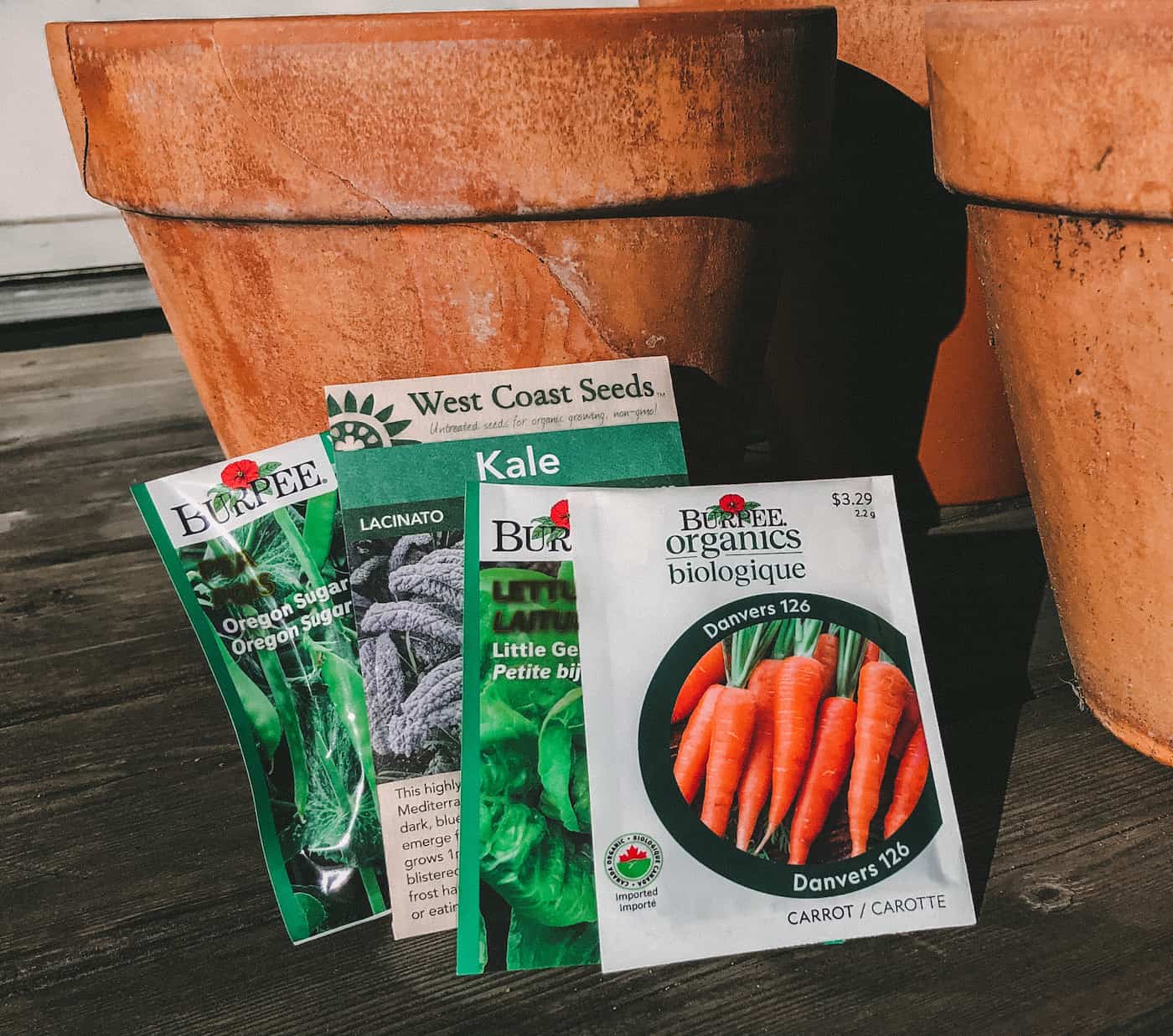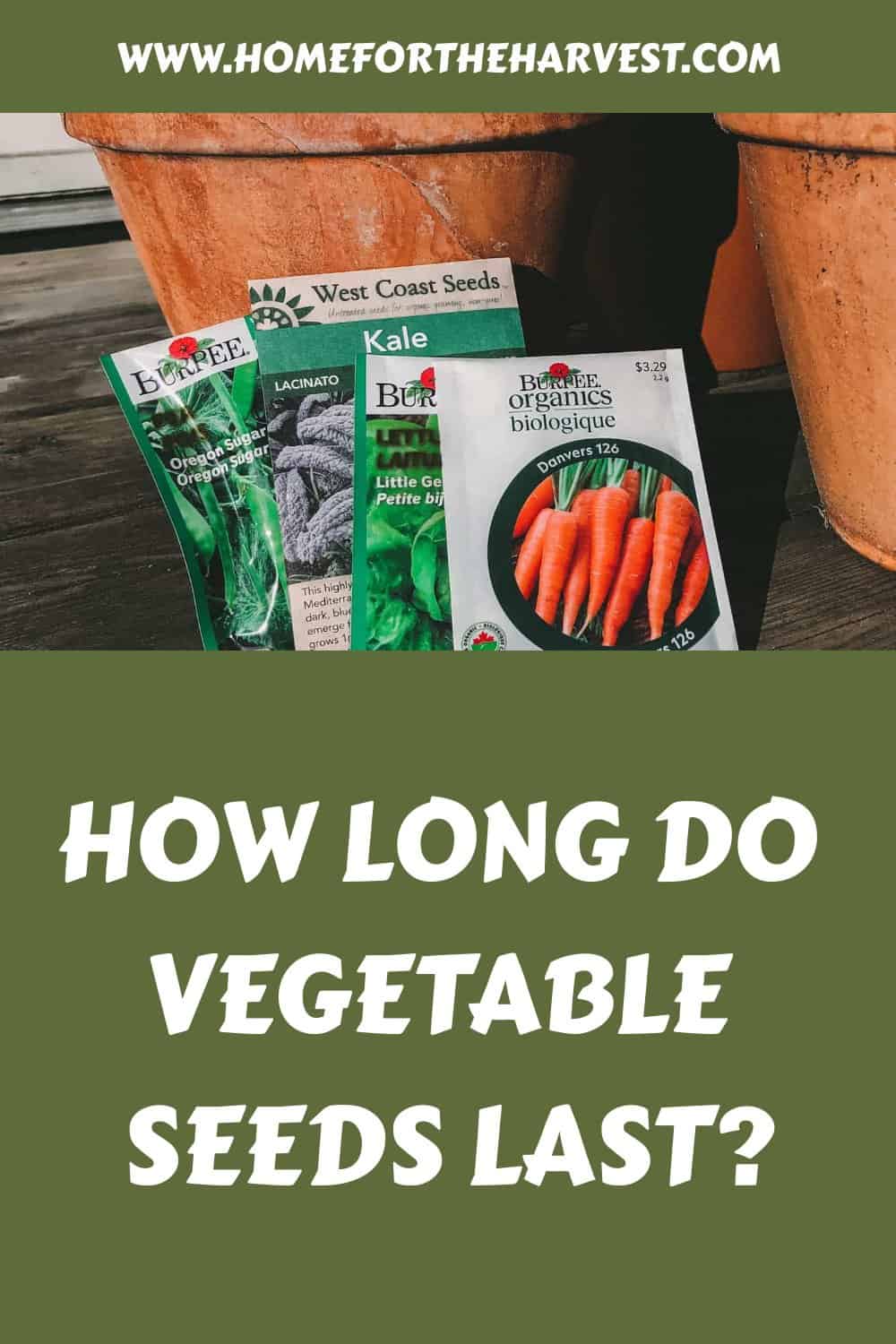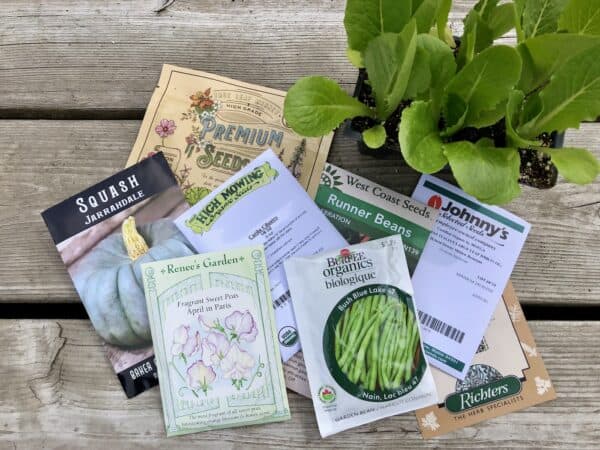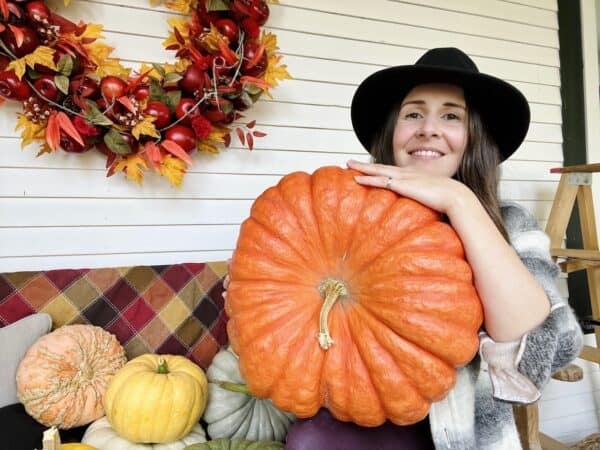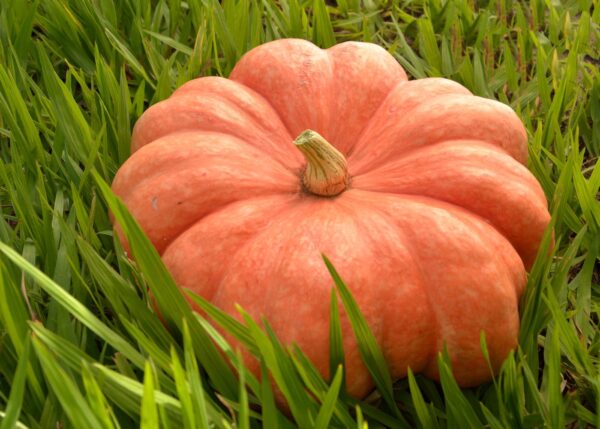Wondering how long vegetable seeds last? You’ve come to the right place. We’ll be exploring this topic in detail and helping you get all your questions answered.
With proper storage conditions and a bit of testing knowledge, you can ensure that your vegetable seeds stay viable for as long as possible. In order to help extend their shelf life, it’s important to understand how different factors like temperature and moisture affect seed longevity.
How long do different vegetable seeds last?
Different vegetable seeds have different shelf lives, depending on the type of seed and how it is stored. In good home storage conditions (cool, dry, dark spot), most vegetable seeds last for about three years.
Here is a chart showing how many years some common vegetable seeds tend to stay viable in terms of shelf life:
| Vegetable seed | Seed viability in good home storage conditions (years) |
|---|---|
| Onion | 1 |
| Parsnip | 1 |
| Corn | 2 |
| Pepper | 2 |
| Leek | 2 |
| Okra | 2 |
| Pea | 3 |
| Spinach | 3 |
| Carrot | 3 |
| Cauliflower | 3 |
| Bean | 3 |
| Arugula | 3 |
| Asparagus | 3 |
| Broccoli | 3 |
| Celery | 3 |
| Cabbage | 4 |
| Beet | 4 |
| Chard | 4 |
| Tomato | 4 |
| Pumpkin | 4 |
| Squash | 4 |
| Eggplant | 4 |
| Kale | 4 |
| Tomatillo | 4 |
| Turnip | 4 |
| Radish | 5 |
| Cucumber | 5 |
| Melon | 5 |
| Lettuce | 6 |
| Globe artichoke | 6 |
Proper storage conditions are key to keeping your seeds viable for as long as possible.
Storage conditions
The best way to store vegetable seeds is in a cool, dry place away from direct sunlight. A refrigerator or freezer can also be used if you want to extend the life of your seeds even further. It’s important not to let them get too hot or cold, however; temperatures that are too extreme can damage the viability of the seed. If storing in an airtight container, make sure there is enough ventilation so moisture doesn’t build up inside and cause mold growth on the seeds.
“Between 32 and 122°F (0 and 50°C), for every 10-degree F (5-degree C) rise in temperature and every 1 percent rise in seed moisture, seed life is halved. A sobering thought!”
The complete guide to saving seeds, by Robert Gough and Cheryle Moore-Gough
Shelf life
Most vegetable seed packets will indicate how long they remain viable when stored properly; this information should always be followed closely for optimal results when planting later on down the road. Generally speaking, most types of vegetables will last anywhere from one year up to five years with proper storage conditions (depending on variety). Seeds such as lettuce and radish tend to have shorter lifespans while beans and corn may last longer than other varieties due to their hard outer shells which protect them better against environmental factors like heat or humidity changes over time.
Seeds store best in airtight, moisture-proof containers made of glass or metal. Plastic containers and freezer bags can work for mid-term storage, while paper and cloth should only be used for storage under a year or two.
To test whether your old vegetable seeds are still good before planting them in soil, try doing a “float test” by filling a bowl with water and dropping some of your old seeds into it – if they sink then they’re likely still viable. You can also try sprouting some of them indoors first before planting them outside just in case there’s any doubt about their quality after testing them out this way. However, keep in mind that not all types of vegetables respond well when grown indoors without natural light exposure so check online resources beforehand if you plan on trying this method at home.
With the right storage conditions, vegetable seeds can last for years, allowing you to enjoy your harvest season after season. Now let’s look at what those storage conditions are and how they affect the longevity of different types of vegetable seeds.
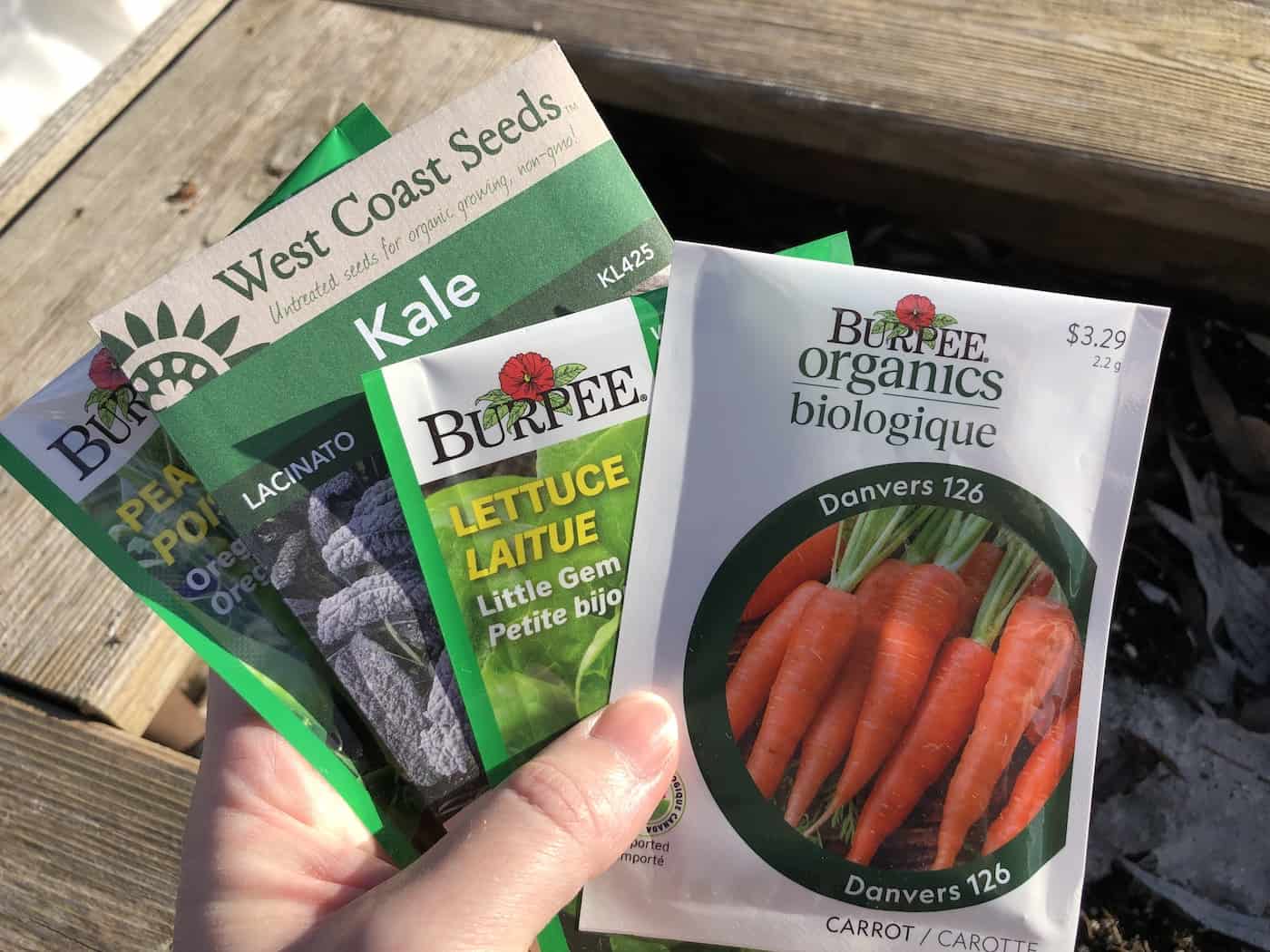
Storage conditions for long-term viability
Storing vegetable seeds correctly is essential for maintaining their viability and ensuring a successful harvest. Vegetable seeds should be stored in an airtight container, such as a glass jar or plastic bag, in a cool, dry place away from direct sunlight. Temperature and humidity can have significant effects on the longevity of vegetable seeds; they should not be exposed to temperatures above 80°F (27°C) or below 40°F (4°C). Humidity levels should also remain low—ideally between 30-50%.
Excessive moisture will cause mold growth on the surface of the seed, which can reduce its germination rate. High temperatures may cause the seed coat to become brittle and crack open prematurely. If this happens, it could expose the embryo inside to dehydration or other environmental hazards that would prevent it from sprouting when planted. It’s important to keep your storage area clean and free of dust particles so that no contaminants are introduced into your seed stock.
You can extend the shelf life of your vegetable seeds by storing them in an airtight container with desiccant packets included inside. Desiccants absorb any excess moisture present in the container and help maintain optimal humidity levels for long-term storage purposes. Additionally, you may want to consider using vacuum sealing technology if you plan on keeping your seeds for extended periods of time; this will ensure maximum freshness over longer periods without having to worry about mold growth or cracking due to temperature fluctuations.
Finally, make sure you label each package with information regarding variety name(s), date purchased/harvested/stored etc. so that you know exactly what type of seed is contained within each package at all times. This way you won’t have any surprises come planting season.
Proper storage conditions can help extend the shelf life of vegetable seeds, but it’s important to understand that their longevity is also affected by other factors. To learn more about how long vegetable seeds last, let’s explore what influences their shelf life in the next heading.
Shelf life of stored seeds
Generally, most vegetable seeds will last for at least one year if they are kept in a cool, dry place away from direct sunlight. Some types of vegetables have longer shelf lives than others; for example, lettuce and spinach seeds can remain viable for up to three years when stored properly. On the other hand, tomato and pepper seeds tend to only last about six months before losing their viability.
It’s important to note that temperature plays an important role in determining how long your vegetable seeds will last. Seeds should be stored at temperatures between 40-50°F (4-10°C). If you store them too warm or too cold, they may not germinate as expected when planted later on. Additionally, humidity levels should also be monitored closely; high humidity can cause mold growth which could damage the seed’s ability to sprout when planted later on.
When storing your vegetable seeds over time, it is recommended to use airtight containers such as mason jars or plastic bags with zip closures in order to prevent moisture from entering and ruining the seed prematurely. Additionally, desiccants like silica gel packets or activated charcoal tablets can be used to absorb excess moisture from the surrounding atmosphere; this helps ensure that your vegetable seed remains viable for a longer period of time without being damaged by condensation buildup inside its packaging material.
If you’re unsure whether or not a particular batch of seed is still good after being stored away for some time, then you can always test out a few samples before planting them all in order to make sure they’ll actually grow once put into soil. This is especially true if you’ve had any doubts about their storage conditions during their period of dormancy prior to testing.
To do this, simply take 3-5 individual samples from each variety/batch of seed and plant them separately into small pots filled with moistened potting mix. Water regularly until sprouts appear, then check back periodically throughout the growing season(s) afterwards just like normal plants would require care and attention during their lifespan. This way, you’ll know exactly what kind of success rate each variety has under different environmental conditions before investing more resources into larger scale production efforts down the line.
Seeds are an essential part of gardening and have a shelf life that varies depending on the type. Generally, vegetable seeds can last for up to four years if stored properly in a cool, dry place. However, some types of seed may only last one or two years before they become too old to be viable.
The best way to determine how long your particular type of seed will remain viable is by reading the package label. Most packages will list the expected shelf life for that variety of seed as well as any special storage instructions you should follow in order to maximize its lifespan.
For example, some seeds need to be kept at temperatures below 40 degrees Fahrenheit while others prefer warmer temperatures between 60-70 degrees Fahrenheit. Additionally, some varieties require more humidity than others so it’s important to check the packaging carefully when storing your seeds in order to ensure their longevity and viability over time.
It is also important to take into account the need for darkness when storing certain types of vegetable seeds, as direct sunlight or fluorescent light exposure can drastically reduce their shelf life if not avoided. Proper storage preparation should therefore include avoiding such sources of light in order to maximize the longevity and viability of your seeds.
Finally, moisture levels must also be monitored closely since too much moisture can cause mold growth which can render even freshly purchased seeds useless after just a few weeks or months on the shelf. To avoid this problem altogether, make sure you store your vegetable seeds away from sources of water such as sinks and washing machines where excess moisture could accumulate over time leading to them becoming unusable sooner rather than later.
Knowing the shelf life of vegetable seeds can help you plan your garden and make sure that you are using viable seeds. To ensure the best results, it is important to test your seeds before planting them in order to determine their viability and germination rate.
Testing the germination rate of seeds
Testing old seeds to determine if they are still viable is an important step in gardening. Knowing how long different vegetable seeds last and the best way to store them can help ensure a successful harvest. Fortunately, there are several ways to test old seeds for viability before planting them in soil.
Floating test
One of the simplest methods of testing seed viability is the floating test. Fill a bowl or cup with water and drop 10-15 seeds into it. If more than half of the seeds sink, they should be viable; however, if most float, then they may not be able to germinate when planted in soil.
Germination test
The germination test requires slightly more effort but provides more accurate results than the floating test does. Place some damp paper towels on a plate or shallow dish and spread out 10-15 old vegetable seeds onto it evenly spaced apart from each other. Cover with another layer of damp paper towel and place in a warm spot (ideally around 70°F). After about 7 days check for signs of sprouting; any that have sprouted indicate that those particular vegetable seed varieties are still viable and ready for planting outdoors.
Soil test
For an even more reliable method of testing seed viability, try doing a soil test by planting 10-15 old vegetable seeds directly into potting mix or garden soil. Water lightly every day until you see signs of growth after about 7 days; this indicates that those particular varieties are still viable enough to produce healthy plants when transplanted outdoors later on.
FAQs about how long vegetable seeds last
Do vegetable seeds expire?
Yes, vegetable seeds do expire. The amount of time they remain viable depends on the type of seed and how it is stored. Generally speaking, most vegetable seeds will remain viable for up to three years if kept in a cool, dry place away from direct sunlight. However, some varieties may only last one year or less before their germination rate drops significantly. Proper storage and rotation of your seed supply can help ensure that you are planting fresh, viable seeds each season.
Will 20-year-old seeds grow?
It is possible that certain 20-year-old seeds may still be viable and able to germinate. However, it is difficult to predict the success rate of such aged seeds as viability decreases with age due to a variety of factors including storage conditions, seed quality, and species-specific traits. Therefore, while some older seeds may still sprout successfully, there is no guarantee that all will do so.
It is best to test a few of the seeds before planting a large quantity. Soak a dozen seeds for a couple hours, place them on some moist paper towel, keep them at room temperature, and watch to see if any sprout.
How long will seeds last in packets?
Seeds in packets can last for a long time, depending on the type of seed and how it is stored. Generally speaking, most seeds will remain viable for at least one to two years when kept in a cool, dry place. However, some varieties may only last up to six months or less if not stored properly.
To ensure maximum longevity from your seed packets, store them away from direct sunlight and humidity and keep them sealed until ready to use. Glass jars or metal-sealed containers work best. With proper storage techniques, you can expect your seeds to stay viable much longer than their stated expiration date.
How do you know if vegetable seeds are still good?
Vegetable seeds can still be viable for many years, depending on the type of seed and how it has been stored. To test if a seed is still good, you can try the float test: place the seeds in a bowl of water and discard any that float to the top as they are likely no longer viable.
If some sink to the bottom, take out a few and place them on a damp paper towel; after several days check for signs of germination such as sprouts or root growth. If none appear, then those seeds are not viable either. Lastly, if you have access to a microscope you can examine individual seeds under magnification for signs of life like embryonic roots or shoots. If you see these, then the seed is likely still viable.
Before you go…
In conclusion, it is important to know how long do vegetable seeds last in order to get the most out of your gardening efforts. Proper storage conditions and shelf life are key factors that will help you maximize the longevity of your vegetable seeds. Testing your seeds before planting can also give you an idea of their viability so that you can make sure they are still viable for use. By taking these steps, you can ensure that your vegetable garden yields a successful harvest.
Are you i
Resources
- Fall vegetables to plant in early autumn
- Partial sun vegetables to grow
- Container vegetable gardening: A complete guide
- Soil temperature for planting vegetables (with charts)
- Best plants for a balcony vegetable garden
- Types of gardens best for growing vegetables
References
- Roberts, E. (2012). Viability of Seeds. Springer Science & Business Media.
- Toole, W. H. (1942). Storage of Vegetable Seeds. U.S. Department of Agriculture.
- Seed Saving 101: Everything You Need to Know
Need more info?
Are you interested in learning more about how long vegetable seeds last? Here are our best articles about it!
nterested in learning more about what seeds to start indoors? Here are our best articles about it!


